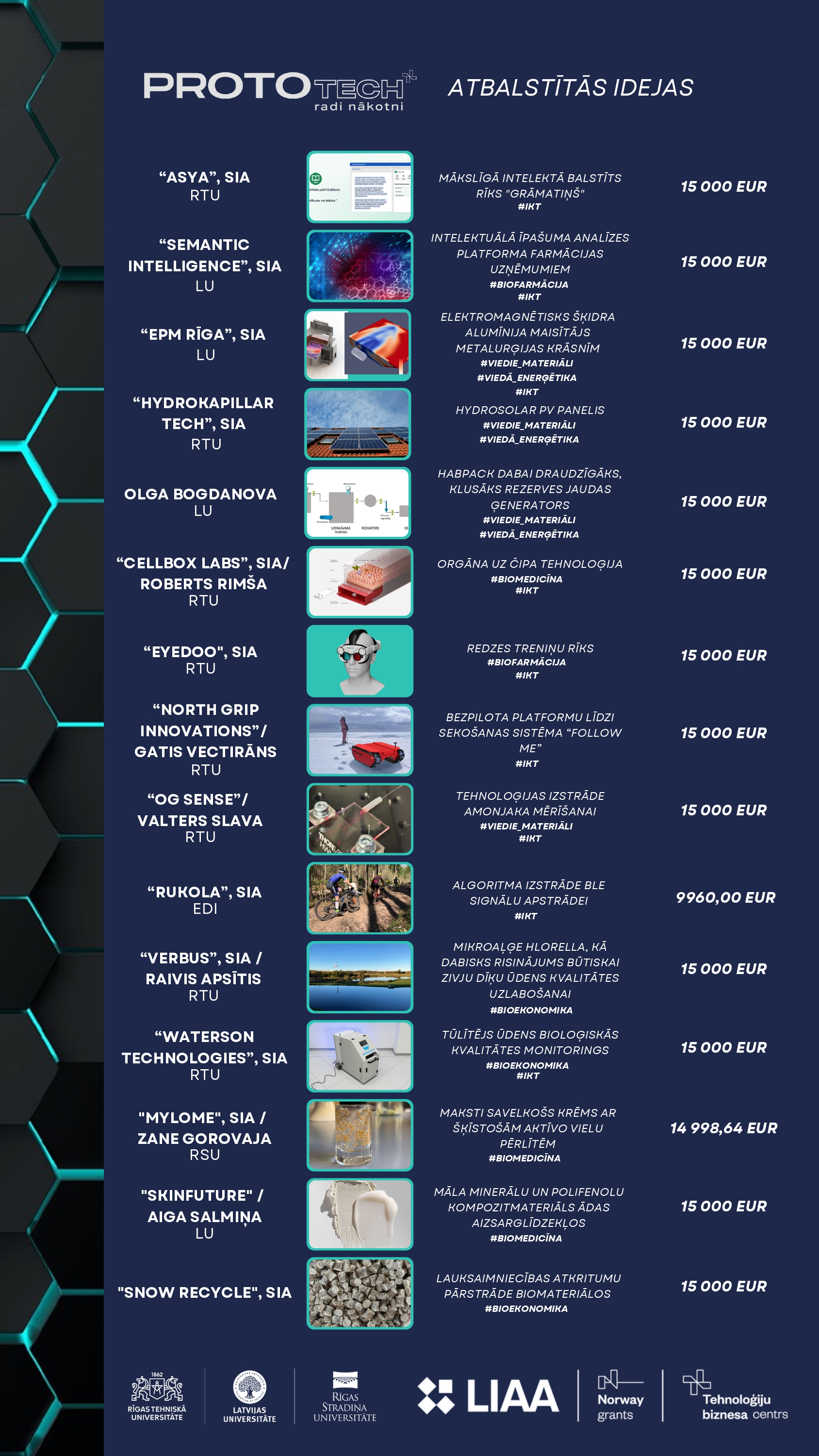As part of the PROTOTECH programme, Riga Technical University (RTU) experts have tested an innovative system to improve the performance of solar panels, opening the door to the use of hydrocapillary technology in solar panel cooling.
The system's client («Hydrokapillar Tech») points out that the core element of Hydrokapillar® technology - the capillary heat exchanger - is a smart building material with a useful life of more than 50 years, excellent thermal conductivity and wide applicability. It has no residues in the production process and is environmentally friendly. The technology enables a significant reduction (at least 40-50%) in primary energy consumption, especially in combination with heat pumps, solar panels or collectors, and provides extremely low heating temperatures (+25-32C), as well as the possibility to cool rooms with the same system in summer. The technology is currently used in the construction sector for heating and cooling of buildings, but the company sees the possibility of using such capillary heat exchangers for cooling solar panels, which would both increase electricity production and create the possibility of using the heat stored in the panels to prepare hot water for the building or to store heat for the heating season.
«If one of these panels is installed in a garden house, we generate electricity during the day, charge our computer, radio or phone, and in the evening we can take a bath in warm water. Solar parks will not be built with such a system, but if we are talking about one or two panels, then it is important not to leave every watt, every volt, to waste and take it for yourself,» explains Jānis Zaķis, senior researcher at the Institute of Industrial Electronics and Electrical Engineering at the RTU Faculty of Computer Science, Information Technology and Energy. In this project, which was implemented under the Latvian Investment and Development Agency's PROTOTECH prototyping programme, he was responsible for the installation of the hydrocapillary system on the solar panel, the choice of thermal connections, fixings, measurements and technical proposals. «Our job was to test the whole idea, to integrate the capillaries into the solar panel, to understand how best to attach them, how it would all work. You could say we caught the first mistakes. We checked what temperature we could initially produce, heated up the panel and saw what kind of result we could get, and described it all,» says J. Zaķis. A big challenge was that the trials, which took place in winter, had to simulate light conditions - using large floodlights and other aids - but this was also successful.
At the same time, J. Zaķis would like the specialists involved in the project to have the opportunity to continue working on the solutions they have created, as at the moment everything they have done has to be returned to the company. «I can only hope that the company will be willing to develop the project further and cooperate,» he says. It is also essential that such technology-intensive projects should be able to receive additional funding as the project progresses, and that indirect and direct costs should be more closely aligned, with a specific percentage of the project cost allocated to salaries, development and other expenses.
PROTOTECH is a prototyping programme created by the Technology Business Centre of the Investment and Development Agency of Latvia, which provides support to natural and legal persons in the design and development of prototypes of science-intensive technology products or services in cooperation with leading Latvian universities - RTU, University of Latvia and Riga Stradins University. The project is implemented under the Norwegian Financial Mechanism 2014-2021 Programme «Entrepreneurship Development, Innovation and Small and Medium-sized Enterprises». The project has received support of EUR 15 000. The project has received EUR 15 million.
Working together for a competitive Europe!

